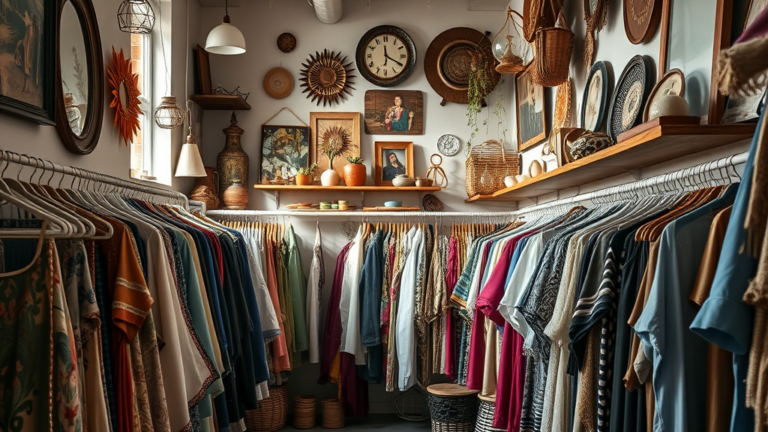Opening a second-hand store in Dubai can be both a fulfilling and lucrative venture. With a growing interest in sustainable shopping and unique pre-owned items, the demand for second-hand goods is steadily increasing. By following the right steps, entrepreneurs can successfully set up a store that attracts both locals and tourists. This article will guide you through the key processes, legal requirements, and strategic plans necessary to start your second-hand store in Dubai.
Understanding the Market Potential

Before diving into the logistics of opening your store, it is crucial to understand the market potential for second-hand goods in Dubai. The city’s diverse population creates a unique consumer base interested in a variety of products, from clothing and furniture to electronics and collectibles. Additionally, shoppers are becoming more environmentally conscious, leaning towards sustainable options over fast fashion.
To assess the market demand, consider the following:
- Conduct market research to identify your target audience.
- Analyze competitors in your vicinity to evaluate their offerings and pricing.
- Survey potential customers to understand their preferences.
- Look into trends in sustainable shopping within the UAE.
- Identify niche markets that you could focus on, such as vintage clothing or refurbished electronics.
Legal Requirements for Setting Up Your Store

Launching a second-hand store in Dubai involves adhering to legal protocols and obtaining necessary licenses. The process can be streamlined but does require thorough steps:
Firstly, you need to register your business with the Department of Economic Development (DED). You will need to choose a suitable name for your store and ensure it complies with local naming conventions. After this, the following licenses are typically required:
- A trade license, enabling you to conduct business.
- An import/export license, if you’re obtaining second-hand goods from abroad.
- A professional license, specific to retail businesses.
It is also advisable to check if you need zoning approvals based on your chosen location. Moreover, factor in any specific regulations about selling second-hand goods, as this may vary within different emirates.
Finding the Right Location
Choosing the right location is a critical factor in the success of your second-hand store. A high-footfall area will inevitably attract more customers, thereby increasing sales. Here are some tips to consider while looking for the perfect spot:
- Evaluate neighborhoods known for shopping and tourism.
- Consider proximity to other complementary businesses.
- Analyze the accessibility and visibility of the location.
- Look for spaces that can be tailored to your branding style.
- Determine rental costs in relation to your projected sales.
Once the legalities and location are sorted, the next step is stocking your store. Sourcing quality second-hand products is essential; they should appeal to your target demographic while maintaining affordability. Here are practical approaches to stock your shop:
- Network with local thrift shops and garage sales to acquire items.
- Establish connections with designers or brands for returns or overstock items.
- Utilize online marketplaces where bulk second-hand acquisitions are possible.
- Encourage community donations through campaigns or local events.
- Create a consignment program to encourage individuals to sell items through your store.
Marketing Your Second-Hand Store
Effective marketing can significantly impact your store’s success. In Dubai, where the competitive landscape is crowded, it’s essential to develop a strong brand identity that resonates with customers. Consider the following marketing strategies:
- Leverage social media platforms to showcase your unique items.
- Host events in-store to attract local customers and build community.
- Develop partnerships for cross-promotion with local artisans or brands.
- Utilize online marketplaces and local business listings to increase visibility.
- Implement loyalty programs to retain customers and encourage repeat visits.
Conclusion
Opening a second-hand store in Dubai requires careful planning, awareness of legal requirements, strategic sourcing, and a confident marketing approach. As consumers continue to seek sustainable and unique choices, the potential for your store to thrive is promising. By understanding your market, following regulatory guidelines, and effectively promoting your brand, you are well on your way to establishing a successful second-hand store that contributes positively to the community and promotes eco-friendly shopping.
Frequently Asked Questions
1. What licenses do I need to open a second-hand store in Dubai?
You will need a trade license, a professional license, and possibly an import/export license depending on your sourcing process.
2. Is there a specific location that is best for a second-hand store?
High-footfall areas or locations near other retail businesses are ideal for attracting customers.
3. How can I source quality second-hand goods?
You can source items from garage sales, local thrift shops, online marketplaces, and community donations.
4. What marketing strategies should I consider?
Utilize social media, host community events, develop partnerships, and implement loyalty programs to attract and retain customers.
5. Are second-hand stores popular in Dubai?
Yes, there is a growing interest in sustainable shopping and unique vintage items, making second-hand stores increasingly popular in the market.
